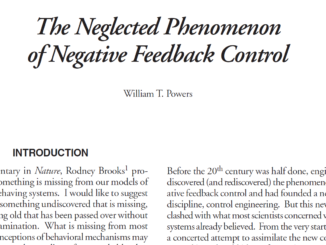
The Neglected Phenomenon of Negative Feedback Control
William T. Powers Control of perception has been reported at very basic levels of life.

William T. Powers Control of perception has been reported at very basic levels of life.
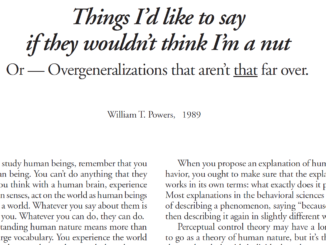
Another hard-hitting comment on the state of our contemporary behavioral sciences. […]
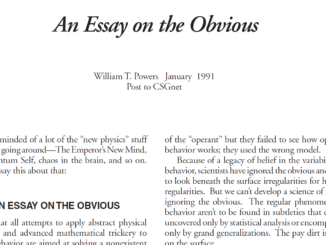
A hard-hitting essay by the creator of PCT on what you see when you look at behavior through the eyes of a physical scientist. […]
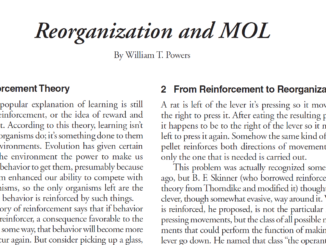
A continuation of PCT in 11 Steps, this is an overview of how control systems may come into being, change, cause internal conflict, and ways to resolve internal conflict. […]

From Reorganization to Evolution and Back
The concept of reorganization as such is irrefutable, but how can it work? In this essay and final comments, Bill Powers touches on the source and evolution of his thinking over the years. […]
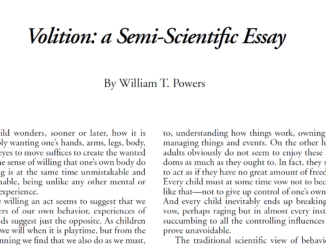
Every child wonders, sooner or later, how it is that simply wanting one’s hands, arms, legs, body, head, or eyes to move suffices to create the wanted result…. — So begins this lovely essay and overview of the fundamental issues that cry out for answers. […]
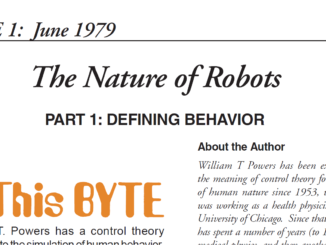
The BYTE articles are a book unto themselves – a four-part introduction to PCT and modeling. […]
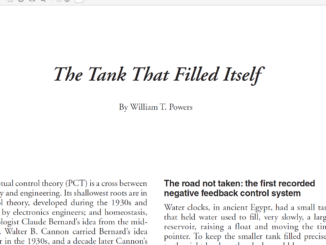
The Road Not Taken to a scientific psychology. […]
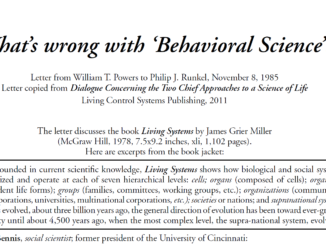
Letter to Philip J. Runkel, November 8, 1985 […]
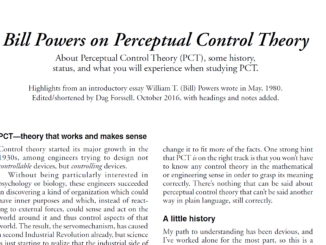
About Perceptual Control Theory (PCT), some history, status, and what you will experience when studying PCT. Highlights from an introductory essay William T. (Bill) Powers wrote in May, 1980 […]
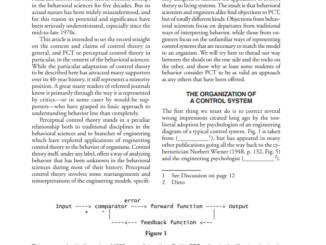
Comparing behaviorism, cognitive psych and PCT.
Misapprehensions and misstatements. […]
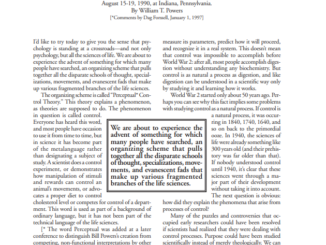
William T. Powers Many people have some sense of what control is about, but very few understand clearly how control works and even fewer (including control engineers) understand clearly what a control systems controls: Not […]
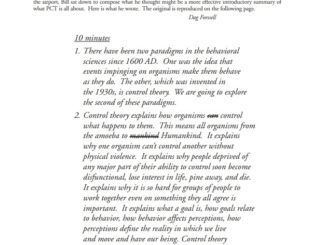
An effective introductory summary of what PCT is all about, by Bill Powers […]

Eva de Hullu and Matias Salgado have been working on this IAPCT website. Its purpose is to present PCT to the world, to connect people and ideas around Perceptual Control Theory and to provide a […]
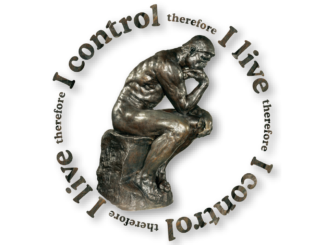
Elements of the control loop have been labeled slightly different by different people at different times and for different purposes, whether for a very plain explanation or for more mathematical treatment of the physical functions. […]

Control is a process of acting on the world we perceive to make it the way we want it to be, and to keep it that way. Examples of control: standing upright; walking; steering a car; scrambling eggs; scratching an itch; knitting socks; singing a tune. Extruding a pseudopod to absorb a nanospeck of food (all organisms control, not only human beings). The smallest organisms control by biochemical means, bigger ones by means of a nervous system. […]
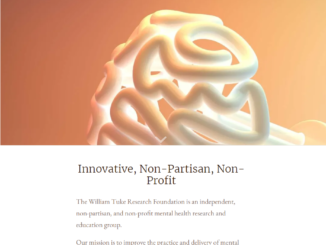
The William Tuke Research Foundation was founded in 2020 by Dr. Anamaria Churchman and Danny Whittaker, inspired by a mutual interest in the interplay of mental health and social hardship, and the shared desire to create a credible research organization that marries together novel, innovative mental health research with ambitious, grassroots community projects. […]
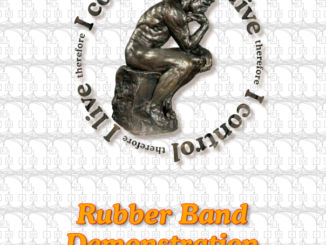
Dag Forssell This script and the accompanying video are designed to introduce and demonstrate the basic concept of PCT. The article Perceptual Control: Management Insight for Problem Solving, in the book: Management and Leadership: Insight […]
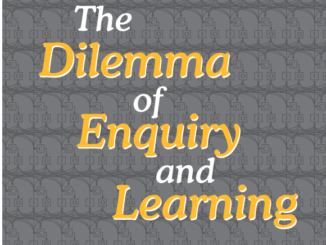
Hugh G. Petrie “I think that this book will be ‘compulsory reading’ in graduate schools of education around the country, and that it will arouse a vigorous and healthy controversy by shaking people out of […]
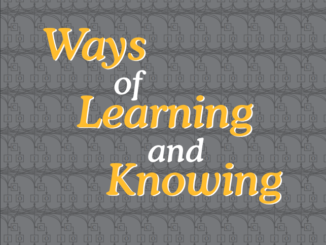
Hugh G. Petrie “For most of his career, Hugh was way ahead of his time. His papers in this volume still are. The role of the evolutionary process of blind variation and selective retention in […]
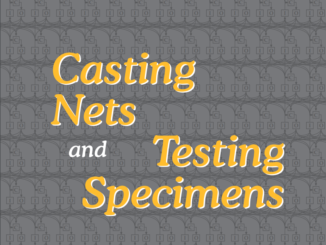
Phil Runkel The spring semester is nearly half completed. I am using your book in two classes. My experience this year is identical to that last year., when I wrote to you, “As time passes […]

Timothy A. Carey “This new book is a great addition to the educational literature. It introduces educators to the most important and revolutionary new development in psychology in decades, PCT. And it does this in […]
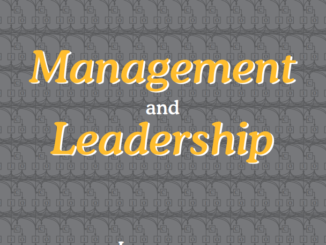
Dag Forssell “When i first learned of PCT about seven years ago, I read everything I could get my hands on and your articles, for me, most clearly explained PCT. Somehow, your unique use of […]
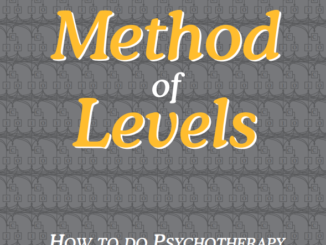
Timothy A. Carey “I’ve just finished the Method of Levels, and I’m astonished, delighted, and inspired. I was a psychotherapist for many years, using a variety of approaches (predominantly Gestalt Therapy, several versions of family […]
Copyright © 2022 iapct.org